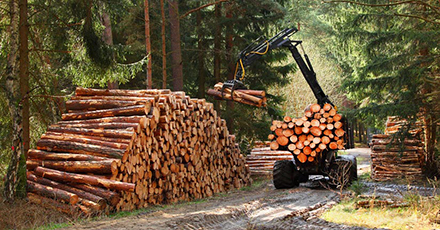It’s no secret that there is a labour shortage across Australia at the moment.
And the timber and forestry industries are not immune.
There are vacancies everywhere. According to a recent NAB report four in 10 business owners in Tasmania, Western Australia and Queensland said labour shortages were a very significant issue over the past three months, as against around one in three in South Australia, Victoria and New South Wales.
Anecdotally transport operators are selling up and walking away from the industry.
The Australian Forest Contractors Association has recognised that attracting drivers into the forestry industry is a national problem and the simple fact is that the industry is not attracting or growing the talent pool.
In response the AFCA has recognised the need for an industry specific program that develops the right skills and get participants excited about working in the industry.
With that in mind, AFCA and Skills 360 developed an industry specific program in 2022 in an attempt to fill the log-truck driver shortage in South East Queensland.
The program is funded by the Queensland Government under the Skilling Queenslanders for Work program, which aims to re-engage longer-term unemployed Queenslanders by providing a unique, industry specific program which gets them ready for work.
Once the participants have finished in classroom learning they will spend some time with AFCA members getting experience in the field and being exposed to all the job opportunities our great industry has to offer.
The industry in Tasmania has also recognised the skills shortage is of concern.
In response a Forest Industry Career Mapping Project has been developed as a joint initiative between the Tasmanian Forests and Forest Products Network and the Tasmania Forestry Hub.
Tracey Taylor, TFFPN’s Manager Workforce and Diversity is leading this project, and believes undertaking industry-wide career mapping is a first for the Tasmanian forest industry.
Input from employers across the industry – both large and small – is encouraged and will be key to the project’s success.
The team wants to know what are the current jobs employers are having trouble filling, what skills do workers need to do these jobs and are these jobs critical for the growth of your business and the industry as a whole?
Tracey Taylor believes gaining an understanding of the career entry points, and educational pathways is critical to attracting, recruiting and retaining the industry’s workforce for the future.
The project is also key to the activities of the Tasmania Forestry Hub.
Forestry is, despite massive advances in technology, still an industry which relies on people.
Long gone are the days when the image of the forestry industry was of people with axes covered and dirt and sawdust.
It is an exciting industry. Yes, it is still hard work, but so rewarding.
Hopefully the AFCA and the Tassie project can go some of the way in attracting people into the industry.






